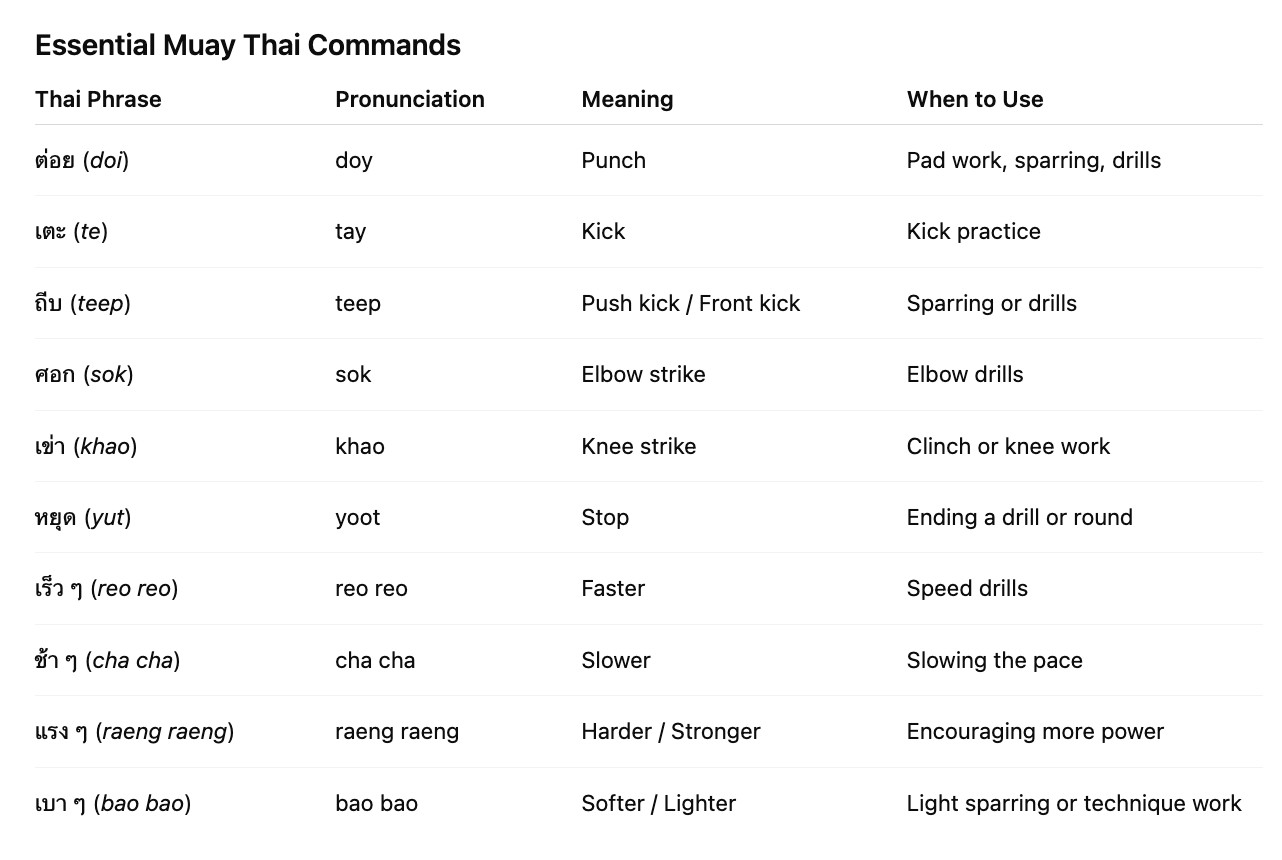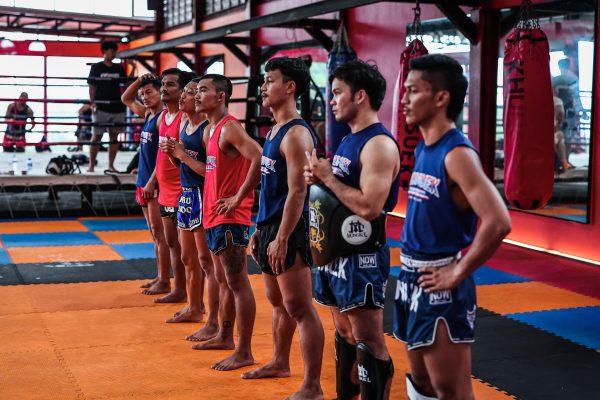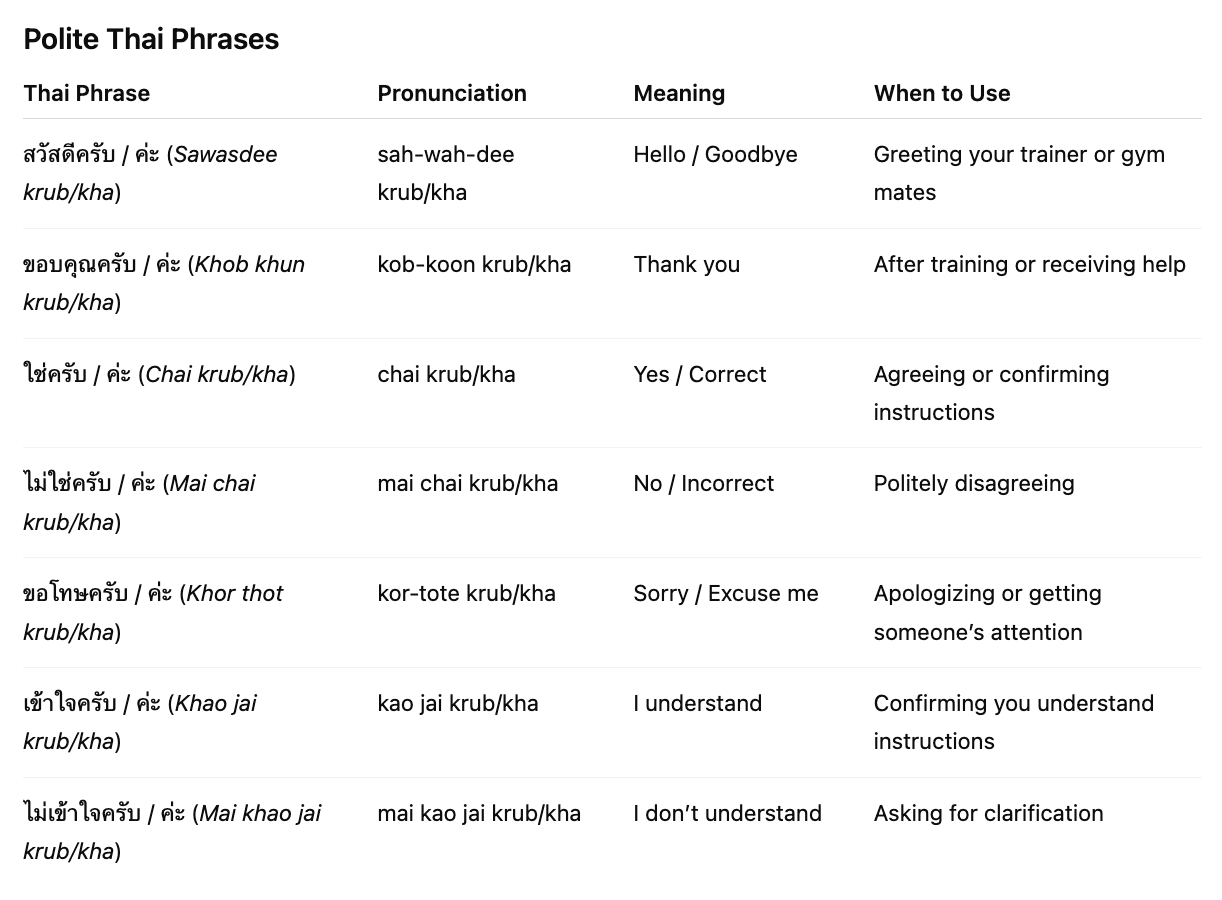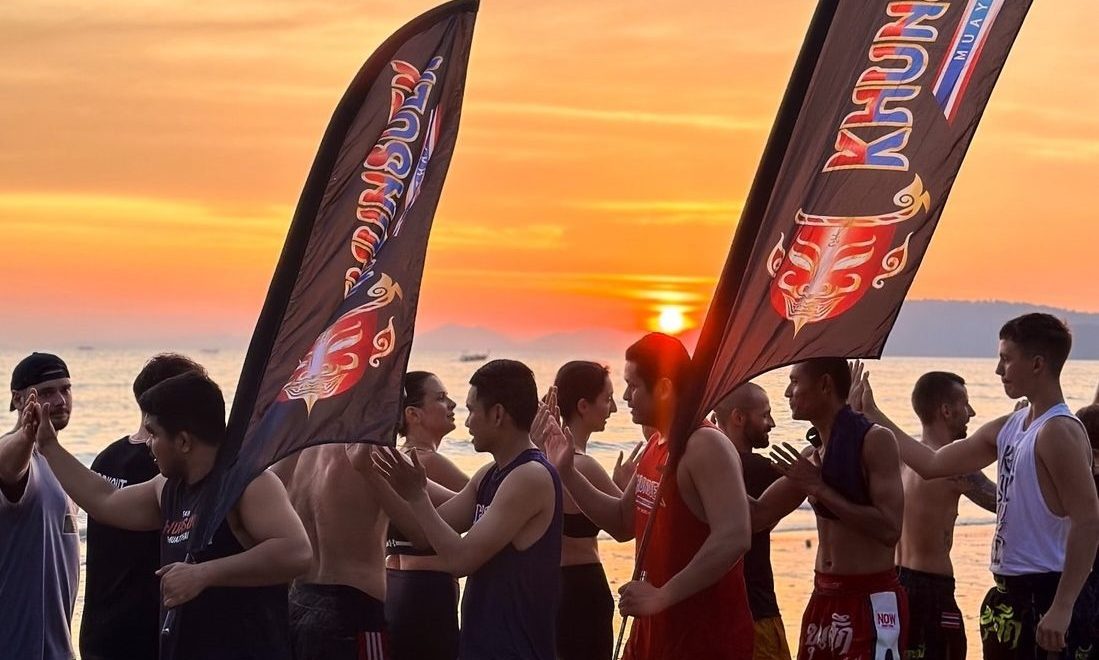Even if you have experience training back home, training in Thailand is an unmatched experience. The hot humid climate with the sound of pads smacking in the background while trainers are shouting encouragement in Thai might feel completely new. While many Thai trainers speak some basic English, learning a few basic Thai words can make a big difference in your training.
Not only will you learn faster but you’ll also show respect for Thai culture and earn some smiles from your trainers. The good news? You don’t need to be fluent, just knowing the most common Muay Thai commands and polite phrases will help you feel more confident inside and outside the gym.
This guide covers essential Thai phrases for Muay Thai, how to say them, and when to use them!
Muay Thai Commands You’ll Hear in the Gym
In a Muay Thai class, your trainer will often mix Thai and English but certain words are almost always given in Thai. Here are the ones you’ll hear most often:

Pro Tips:
- Double words = emphasis. In Thailand, repeating the word (reo reo, bao bao, raeng raeng) makes it stronger or more urgent. This is how Thai trainers signal you to change intensity.
- Power vs. technique. When you hear raeng raeng, it’s about putting more force into the strike. When you hear bao bao, it’s about control and precision.
- Expect mix and match. Your trainer might combine commands
- e.g., doi raeng raeng (“punch harder”) or te reo reo (“kick faster”).

Polite Thai Phrases to Show Respect in the Gym
In Thailand, politeness goes a long way, especially in traditional gyms. Adding the correct polite particle (krub for men, kaa for women) to shows good manners.

Pro tip: When greeting your trainer with Sawasdee krub/ka, add a wai (palms together, slight bow) to show respect. In many Muay Thai gyms, it’s customary to wai your trainers before and after class as part of showing gratitude for their teaching.
Quick Pronunciation Tips
Thai is a tonal language which means pitch can change meaning. But don’t stress about perfect tones; most Thais will understand if you try.
-
Listen closely to your trainer’s pronunciation and repeat it.
-
Keep it short and clear — over-exaggerating often confuses more.
-
Smile while speaking; it’s part of Thai communication.
Final Thoughts
Learning basic Thai phrases won’t just help you follow instructions, it’s a sign of respect for the art of Muay Thai and the people who teach it. Start with a few new thai words, practice daily and you’ll be surprised how quickly you pick them up. Even make it a habit to ask your trainers how to say something in Thai.
When in doubt? Smile, wai 🙏 and give it your best shot. Your trainers will appreciate the effort.


